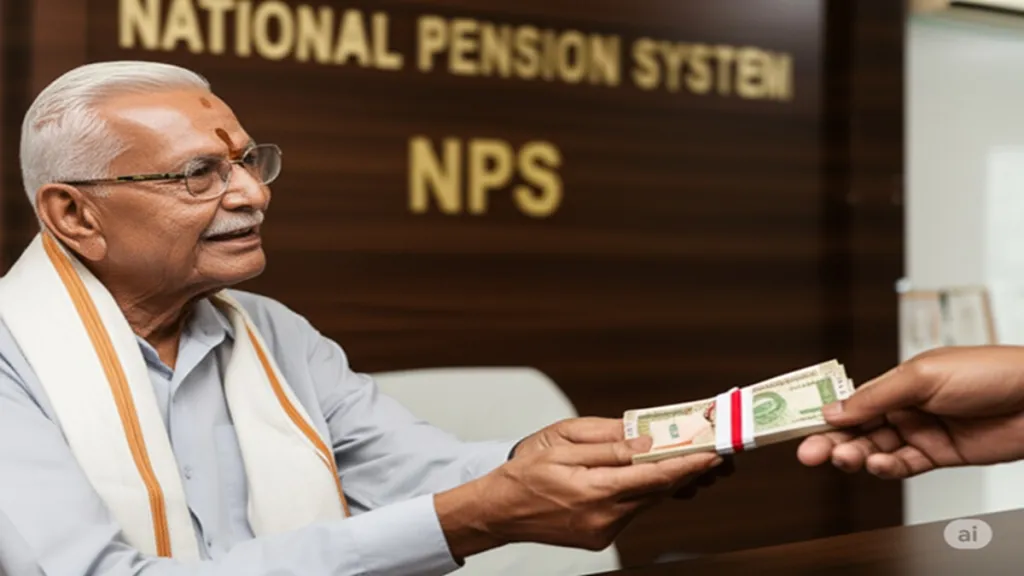The NPS (National Pension System), which is also popularly known as the national pension scheme, is today the most sought-after retirement scheme in the country. Started in 2004 for only government staff, the pension scheme was later offered to all citizens on a voluntary basis. The NPS is a market-linked defined-contribution retirement scheme for all citizens in the age bracket of 18 to 70 years.
Over the last more than two decades, the NPS has undergone a range of important changes. The scheme has seen some landmark reforms in the last one year to widen its user base and increase its acceptability among subscribers.
What is the purpose behind these changes under NPS?
There is a growing concern about retirement security in India, and keeping this in mind, several major changes have been made in the scheme recently. These changes have been made specifically to make pension planning easier, easier to understand and more flexible for everyone.
The central government has been making these changes in the NPS to ensure long-term financial security for citizens across social strata so that they can live their retirement life in a hassle-free manner.
Also read: Pension rules change: Govt employees’ retirement benefits can be denied if they are found…
Here are 6 major changes effected under the NPS recently. Krishan Mishra, CEO of FPSB India, highlights major reforms that have transformed the NPS landscape in the past year.
NPS Vatsalya: Early retirement planning for children
NPS Vatsalya was launched on September 18, 2024. Like the NPS, the NPS Vatsalya scheme is also a contributory scheme, which targets minors till the age of 18 years. NPS Vatsalya is also regulated by the Pension Fund Regulatory and Development Authority (PFRDA), like the NPS.
According to Mishra, NPS Vatsalya is one of the most notable initiatives designed to help parents and guardians start retirement planning for their children early. This approach encourages disciplined investing habits from a young age, emphasizing the importance of financial planning right from childhood, he added.
Easy payments with Bharat Bill Payment System
The integration of NPS with the Bharat Bill Payment System (BBPS) is another milestone, bringing unmatched ease and accessibility to contributors across the country, feels Mishra. Seamless payments are a fundamental enabler of consistent investing, and this change is a significant stride forward, he said.
Improvement in partial withdrawal rules increases flexibility
The facility of withdrawing the pension amount at the time of retirement has also been improved. The newly revised partial withdrawal rules now give individuals more freedom to withdraw part of their funds according to their needs and financial planning, according to him.
Also read: Unified Pension Scheme extended for THESE employees: How to claim UPS benefits, deadline to apply
Option of old pension scheme to All India Services officers
The Ministry of Personnel, Public Grievances and Pensions has recently announced that officers who have joined the service under NPS will have to give an option at the time of appointment whether they want to remain in NPS or take advantage of OPS in an unfortunate situation (death or disability).
Also, All India Services (AIS) officers have been given the option to return to the Old Pension Scheme (OPS) under certain circumstances. This provision has been made to ensure the safety of government employees and their families, especially in case of an untoward incident.
This option, extended to officers of the AIS under specific circumstances, is a thoughtful provision aimed at safeguarding the financial security of public servants and their families, feels Mishra.
Speedy and improved pension process
The process of pension payment has now been made smoother and quicker on the lines of the old pension scheme. This ensures that retirees get their benefits on time and reduces administrative delays.
“The streamlining of pension processing to mirror OPS mechanisms brings improved efficiency and timeliness in disbursing benefits — vital to ensuring retirees receive their due without delay,” Krishan Mishra, CEO of FPSB India, emphasised.
Also read: NPS pension funds Vs Large-cap mutual funds: Which gave better returns in 5 years?
Unified Pension Scheme: Big step towards an integrated pension system
The Unified Pension Scheme (UPS) has been implemented from April 1 this year for all central government employees covered under the NPS. All central government staff, except for the armed forces, are eligible to apply for the new pension scheme UPS till June 30 this year.
UPS has come as an alternative to NPS for the central government employees. The UPS roll-out is being seen as an effort to make the pension system more inclusive.

